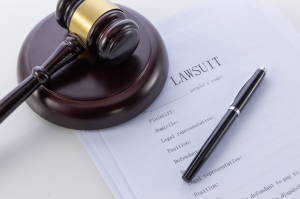It's never easy to deal with the aftermath of a car accident. Between trauma and injury, you're left with both physical and emotional scars. Unfortunately, the stress doesn't end there. You need to go through the complex legal process and plan strategies to protect your rights. All of this can feel overwhelming, especially when you're trying to focus on recovering.
A quick and fair settlement is the goal here, but getting to that point requires meticulous planning and patience. Here are practical tips to help speed up your accident claim.
1. Gather Detailed Evidence at the Scene
You may not realize it at the exact moment, but the scene of the accident holds crucial evidence that can support your case. Start by taking pictures of everything, such as the:
- Vehicles (both yours and the other party's involved)
- Damage
- License plates
- Surrounding area
It's also important to capture skid marks, traffic signs, and weather circumstances. These details might have contributed to the collision and can help paint a clear picture of what happened. If there are any witnesses, make sure to get their contact information. Their statements could be vital if there's any dispute about who's at fault.
2. Seek Medical Attention
After you've gathered the evidence at the scene, your next step is to seek medical care whether you have minor or severe injuries. Keep in mind that the effects of the accident might not show up right away.
It's essential to document any injuries right away, as insurance companies often use delays in treatment to argue that the damage isn't too serious. Immediate medical attention provides a clear timeline for when the injury occurred.
If symptoms develop later, having a record of the initial check-up can be critical in establishing a link between the accident and the injuries. Without a medical history of the crash, an insurer might attempt to reduce or deny compensation.
So, make sure to follow your treatment plan and keep all your prescriptions and bills. This documentation will strengthen your claim and help move things along more smoothly.
3. Consult With an Experienced Car Accident Attorney
This step shouldn't be something you leave for later. Having an experienced car accident lawyer on your side early can make all the difference. A good one knows the ins and outs of personal injury law and can guide you every step of the way. They're also well-versed in negotiating with insurance companies and understanding the tactics adjusters use.
The only challenge here is choosing the best attorney. After all, it's in their hands whether your case progresses or gets delayed. Not to mention, they also have the expertise to give you a favorable outcome and help you achieve maximum compensation.
To narrow down your search, here are a few essential qualities to watch for:
Proven Track Record
A seasoned law expert with a strong history of handling car accident cases is a huge advantage. Look for someone who has consistently helped clients secure fair settlements without dragging the case out. You can ask about their past cases or check client reviews to assess their success rate and efficiency. A proven track record means they know how to navigate obstacles and keep things moving.
Strong Communication Skills
Throughout your case, you'll face many decisions and updates, which can be draining. Look for legal representation who keeps you in the loop and explains everything in simple terms. Part of their job is dealing with the insurance company on your behalf, ensuring nothing gets lost in translation. A lawyer who communicates clearly and consistently can make the whole process less stressful.

Transparent Fees
Service charge is one of the biggest concerns when hiring a lawyer. Make sure they're upfront about their costs from the get-go. Most personal injury attorneys work on a contingency fee, meaning you only pay if they win your case. Even so, it's important to discuss all potential fees clearly from the start.
Choosing a legal advocate with these traits can save you time, reduce stress, and give you a better shot at reaching a faster resolution.
4. Avoid Accepting the First Offer
Insurance companies often present a settlement soon after an accident, but it's usually lower than you're entitled to. Their goal is to resolve things quickly and minimize costs. Accepting this offer without reviewing the full scope of your damages could leave you with insufficient compensation.
So, take your time to consider all the consequences of the accident. Think about both economic and non-economic damages. Here's a quick breakdown:
- Economic damages are tangible losses with a clear financial impact. They include medical costs, car repairs, lost wages, physical therapy, and future treatment expenses. These can be easily calculated based on receipts, hospital bills, and other records.
- Non-economic damages are harder to quantify but just as important. They cover aspects like pain and suffering, emotional distress, loss of enjoyment, and the impact the accident has had on your quality of life. These damages can vary greatly depending on the injuries' severity and long-term effects.
If you're unsure about this matter, don't feel pressured. Your legal advocate can help you assess the complete picture and make sure you're not short-changed.
Wrapping Up
No one expects to be in a car accident, but if it happens, stay calm. Getting to a faster settlement means taking the right steps from the very beginning. Document everything, stay on top of communication, and get the best legal help. With these approaches, you can make the process smoother and quicker, leading to a fair resolution.






